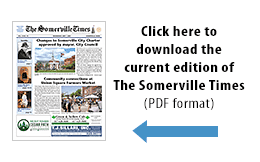While local aldermen express admiration and support for the effort of the East Somerville Neighbors for Change, some fiscal incompatibilities have delayed the group’s endeavors.
ESNC’s current proposal for after-school gym space in the community has gone through several hands since its initiation, without a direct committal.
Aldermen working with the group cite a conflict with the city’s calendar at the root of the delays. “It’s so hard to find money in the middle of the fiscal year,” said Alderman Bill Roche, noting that the proposal came in at a difficult time for the city to work it in. “We start work on the budget in March and April,” he said, “and when June 30th comes around I will definitely do what I can to work it in.”
Roche is fully behind the gyms campaign as a potential solution for concerns of East Somerville residents. “There is no denying we have issues with Somerville youth,” he conceded, “and anything we can do is worth spending money on.” He hopes to try the gyms campaign out as a pilot program within a temporary budget, and then “re-fund it for the new fiscal year.”
Roche expects that the upcoming youth summit will expedite the process and bring further attention to the gyms campaign. “The mayor and I both wanted this to happen and I committed to them that we would bring this up at the youth summit for discussion,” he said, declaring that both he and the mayor have been fully behind the process from the beginning. Roche felt that ESNC understood “that the process would take some time and they were willing to wait for the summit. If I had gotten more of a sense of frustration I would have tried to deal with it a little more.”
Roche sees teen empowerment at work in ESNC’s efforts and constituents. “It’s nice to see young adults take grasp of neighborhoods and spend some of their nights working on changing things” he said. “We are just on the threshold of teen empowerment initiatives,” he said, and predicted that a successful future of East Somerville would involve more of these.
If these kinds of initiatives are so important, why has their work with the city been backlogged? Roche was understanding of some slight frustration but counted it as the political process, saying, “It can be frustrating working in any city government because things take so long.” He also noted, “the difficulty in this process is that a private group took up the initiative – they weren’t a structured city organization but rather wanted the members of the group to solve problems themselves.” The process was a reflection of the group’s techniques, he said, and their wish to problem solve among themselves.
“The group didn’t necessarily know how to move forward on their own,” Roche said, but now that the necessary political contacts have been made he is more able to take the necessary action. He expressed little doubt that the gyms campaign will eventually materialize. “This is something that is going to happen…it’s just a funding issue right now,” he stated.
Alderman Denise Provost echoed this focus on properly directed political efforts, stating that expediting city policy processes involves, “learning to use human resources” available. “I can put them in touch with people who can help them more directly,” she said, “for example; I could set up meetings with appropriate people in the police department if they wanted to set up a crime watch.”
There is one known way to get things done in the city government and, observed Provost, “there’s no need to reinvent the wheel—there are models you can learn about and use, there are contacts that you should have, there are definitely resources out there.” She said the group eventually found many of these resources through work with Acting Recreation Commissioner Karen Harrington, who could not be reached for comment.
ESNC’s neighborhood roots and dedication to the realization of the goals of its residents may have made a certain level of political reconfiguring necessary, but the group has been true to itself and the real issues of East Somerville. “This helped people articulate what they saw as strengths and needs of the community and learn advocacy,” she said, “and it’s been consistently proven that these kind of organization are good for cities.”















Reader Comments